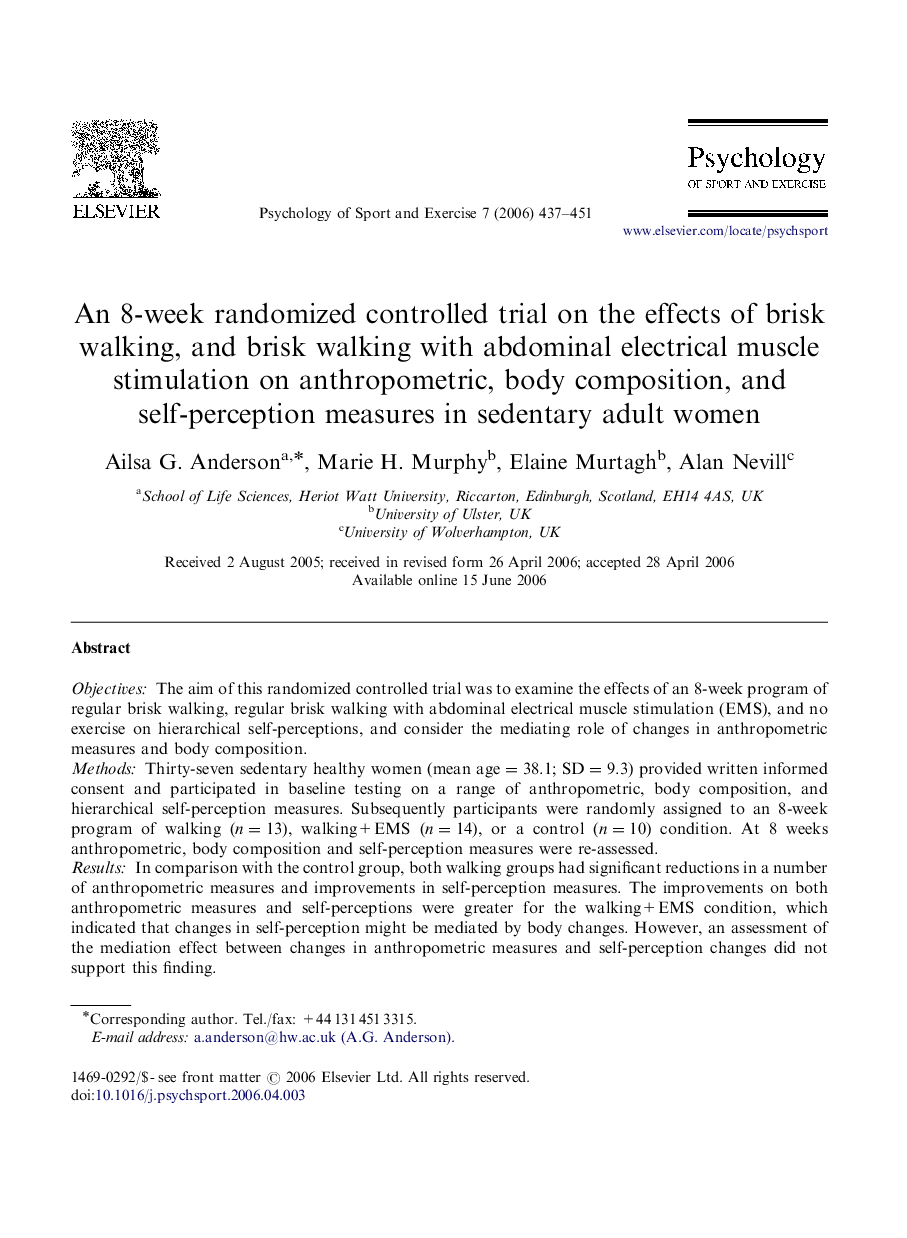| Article ID | Journal | Published Year | Pages | File Type |
|---|---|---|---|---|
| 895023 | Psychology of Sport and Exercise | 2006 | 15 Pages |
ObjectivesThe aim of this randomized controlled trial was to examine the effects of an 8-week program of regular brisk walking, regular brisk walking with abdominal electrical muscle stimulation (EMS), and no exercise on hierarchical self-perceptions, and consider the mediating role of changes in anthropometric measures and body composition.MethodsThirty-seven sedentary healthy women (mean age=38.1; SD=9.3) provided written informed consent and participated in baseline testing on a range of anthropometric, body composition, and hierarchical self-perception measures. Subsequently participants were randomly assigned to an 8-week program of walking (n=13n=13), walking+EMS (n=14n=14), or a control (n=10n=10) condition. At 8 weeks anthropometric, body composition and self-perception measures were re-assessed.ResultsIn comparison with the control group, both walking groups had significant reductions in a number of anthropometric measures and improvements in self-perception measures. The improvements on both anthropometric measures and self-perceptions were greater for the walking+EMS condition, which indicated that changes in self-perception might be mediated by body changes. However, an assessment of the mediation effect between changes in anthropometric measures and self-perception changes did not support this finding.ConclusionsAn 8-week exercise program results in significant improvements in anthropometric measures and self-perceptions compared with no exercise. Changes in anthropometric measures appear to have limited influence on exercise-induced changes in self-perception and it is suggested that a subjective feeling that one's body is improving may be sufficient to enhance self-perceptions.
